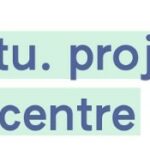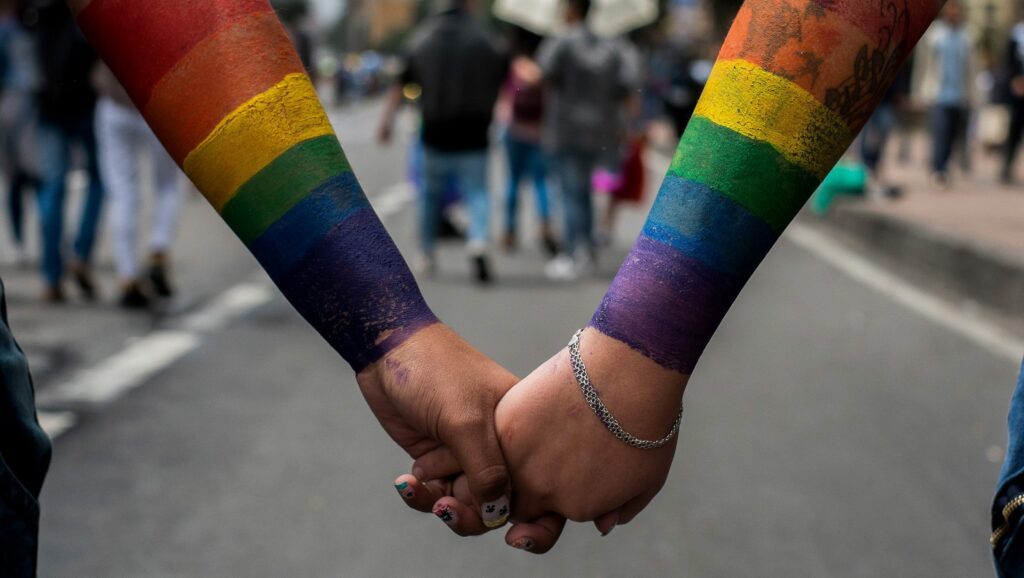LGBTQI+ people represent about 15% of the population in Belgium. This is a solid minority but one that can hardly improve its situation just by itself. In democratic countries, laws are adopted with a majority of at least 50%. This means that the LGBTQI+ community has to rely on non LGBTQI+ people to win its battles. It has to make sure that straight, cisgender people support its claims for equality and inclusion. This is why our community is not limited only to queer people. For about a decade now, a letter has been added in our acronym to represent this support : the A of Allies. LGBTQIA+ people, joining forces, can be much stronger and tip the balance towards a more inclusive and open world.
What is an ally ?
An ally to the LGBTQI+ community is by definition a person that is not LGBTQI+ herself. Allies are people who are male or female, cisgender and heterosexual but who adopt and support the vision developed within the queer world, namely that each individual has the right to be recognized, accepted and protected regardless of their sex, gender and sexual orientation. To put it another way, an ally embraces the diversity of individual situations, understands the discrimination and suffering faced by LGBTQI+ people, and pledges to end them.
An ally hence recognizes the privileges associated with being a non LGBTQI+ person and recognizes that our struggles are part of the global struggles for the recognition of human rights. For this reason, everyone is invited to take part in the fight for inclusion.
How to become a better ally?
If you are reading those words, you are most certainly on the path towards allyship. The first step is indeed to learn more about the LGBTQI+ world, to encompass its diversity, to be aware of its history and to understand its struggles. This mean however that coming to a gay bar does not make you an ally nor does watching the Pride parade drinking beer and dancing. So here are a few tips on how to become a true ally to LGBTQI+ people.
Showing your support in the way you express yourself
One key aspect of being an ally is to be vigilant about how you express yourself with others by adopting an inclusive approach. To put it simply, it means respecting at all times the principle of self-determination: it is not for you to define to which gender category the other belongs to, to decide if this person is a man, a woman or a non-binary person, in the same way that you would not allow others to decide for you which genre category you belong to. The same rule applies regarding sexual preferences and sex determination. Assume that no matter what happens, you cannot know a person’s sex characteristics, gender identity, or sexual and romantic orientation. Do not assume that a person is an heterosexual man or woman and stay open to all possibilities as long as you do not know. Because maybe this person is intersex. Or non-binary. Or asexual.
In the way you address others, try using neutral terms or mentioning several options to leave the door open to the diversity of situations. For example, instead of asking a new coworker if he or she has a wife or a husband, it is possible to ask them in a neutral way if they have a spouse or a partner. Such an attitude opens a secure space in which the other has the possibility, but never the obligation, to open up with confidence.
Respecting other people’s identity also means using the gender pronouns (he, she or they) that one chooses to define oneself. For example, just because you feel that a non-binary or transgender person “looks more like a man than a woman” doesn’t mean you have the right to address this person with masculine pronouns if it is not their choice. Misgendering people that way is offensive. If you don’t know which pronouns to use, the easiest way is to ask the person how she would like to be addressed
When it comes to expressing yourself, it is also important to keep in mind that all of the terms that define gender or sexual orientations categories are always to be used as adjectives, not as nouns. We are not talking about “the trans”, “the bisexuals” or “the androgynes” but about trans people, bisexual people or androgynous people. Nouns objectify people. That’s why these terms are used as adjectives. They only qualify one aspect of an individual, they do not define them in their entirety.
Showing support through your behavior
The other aspect of the ally role covers anything that can be done to support queer people. The easiest and one of the most important things you can do is just making time to listen to a queer person. Being heard is something that can bring a lot of comfort, as queer people often feel isolated. While you may have difficulty understanding the person’s situation, maintaining an open, non-judgmental attitude, and showing empathy and compassion is all that is expected of you. Do not forget to also respect what is shared with you and keep it confidential. If a queer person opens up to you, make it a rule not to reveal what they’ve told you to others. It is not for you to tell other people about their situation until that person asks or gives you permission to do so.
An ally also knows not to be intrusive in matters of a queer person’s privacy. You may be curious about queer people and be willing to know more and understand. This curiosity often explains the urge to ask questions about different aspects of the life of an intersex, transgender or non-heterosexual people. However, a queer person is not a fanciful creature, nor a five-legged sheep. Questions about the appearance of her genitals, any medical operations or treatments she may have had, or her sexual preferences are all, as with any person, inappropriate and intrusive questions. An ally thus refrains from questioning a queer person in order to satisfy her curiosity.
In the same spirit, an ally respects the spaces of socialization of the LGBTQI+ community. She doesn’t visit them with the same expectations as when she is going to the zoo to discover exotic species. LGBTQI+ places are generally open to everyone but they play a special role for queer people as safe and inclusive spaces. An allied person does not organize tourist trips to a gay bar, especially for a bachelorette party. The same is true when it comes to participating in a pride parade. Remember that going to a gay bar or attending a Pride parade does not make you an ally. It’s your attitude and behavior when you do this that makes you an ally.
An ally is also the one who will speak up to testify to his disagreement when he is the witness of remarks or behaviors that are detrimental to queer people. Finally, an ally financially supports actions carried out to strengthen the acceptance and the well-being of LGBTQI+ people or offers herself as a volunteer for these actions.
I hope that these different recommendations will give you some keys to becoming a better ally. These different actions will open a space in which queer people around you – a relative, a friend, a colleague – can feel a little more secure, a little more confident. Again, being an ally all starts with educating yourself and understanding the situation of queer people. Reading KET Magazine articles or listening to our podcast is a first step towards making you a better ally. Changing your perceptions, opening up to other situations, changing your way of expressing yourself and your behavior are all actions that take time and require small daily efforts. Until the moment they will become your new automatisms.
Listen to KET Talks Podcast now on Spotify, YouTube, IGTV, Deezer and Apple Podcasts! Enjoy this sixth episode of the Brussels queer podcast and feel free to give us your feedback on Facebook and Instagram.
You may also like
-

The BGS Winter Retreat: 12th Edition in Serre Chevalier
Every winter, a vibrant tapestry of familiar and new faces gathers from the BGS LGBTQIA+
-

“The Bundestag Is Not a Circus Tent”: Chancellor Merz Faces Backlash Over Rainbow Flag Refusal
German Chancellor Friedrich Merz is at the center of a political storm after backing the
-

Épicentre: Inclusive Health and Well-Being for All in Brussels
Located in the heart of Saint-Gilles, Brussels, Épicentre is a multidisciplinary center dedicated to care,
-

Daryacu: A Safe Haven in Brussels for the Marginalized and Vulnerable
In the heart of Saint-Josse, Brussels, a unique project is quietly making a big difference
-

Why Staying in Brussels in July Is Absolutely Brilliant
In partnership with Visit.brussels If you think summer in Brussels means empty streets and closed

